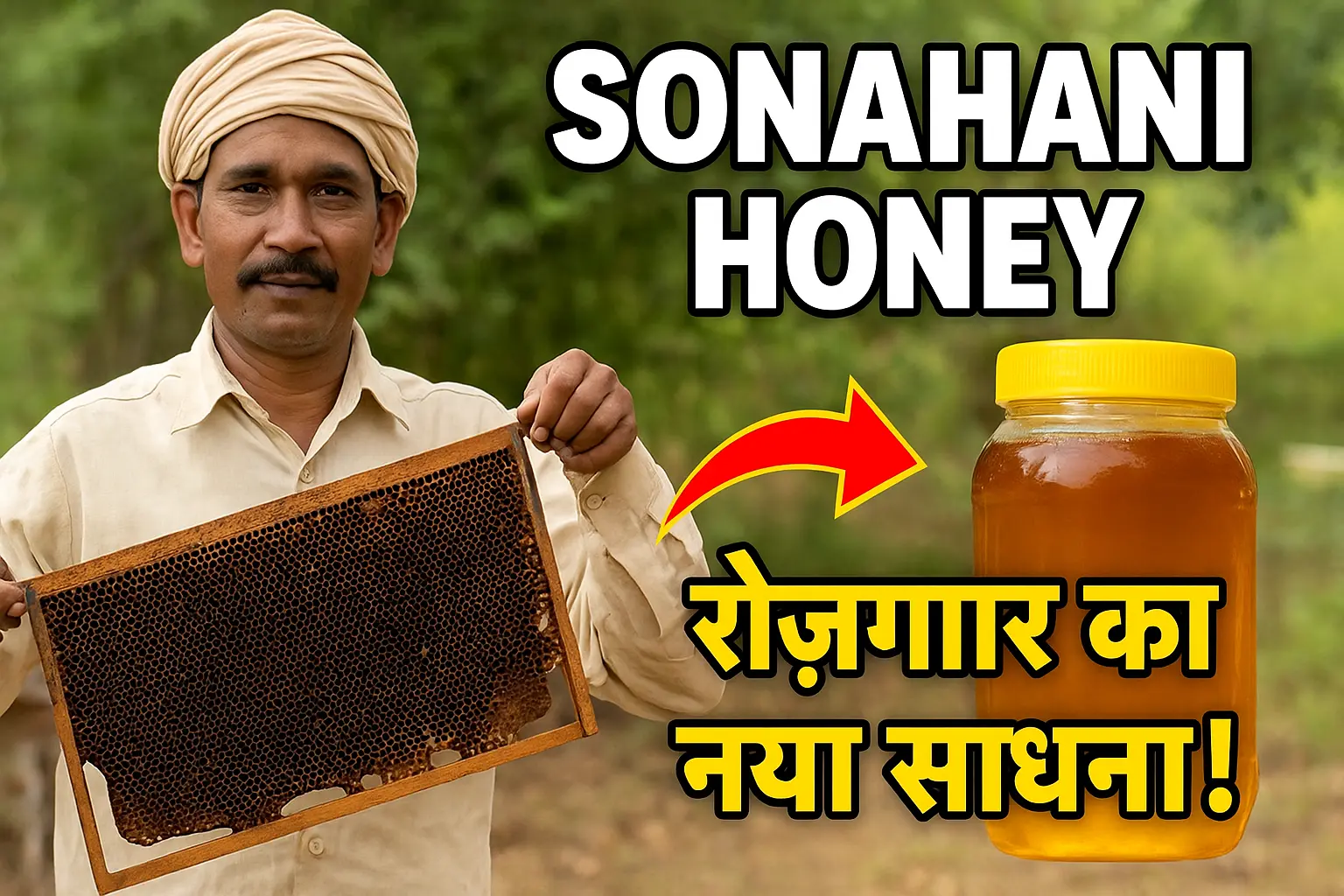If you think nothing ever changes in our villages, this story might just surprise you. In Chhattisgarh, something sweet is happening — literally. A simple project called Sonahani organic honey is not only making local farmers smile but also putting more money into their pockets. And no, this is not one of those big company schemes with a lot of buzzwords. This is a local, low-cost, and totally doable idea that’s growing fast.
Let’s tell you how this project is bringing in change — one beehive at a time.
What Exactly Is the Sonahani Honey Project?
You might be wondering, “What’s this project all about?” Well, it started as a small initiative in the Koriya district of Chhattisgarh. The idea was simple — instead of only depending on traditional crops like rice and wheat, why not add organic honey farming to the mix?
So, the district administration came up with the Sonahani project. They trained farmers, gave them beehive boxes, and showed them how to keep bees and harvest honey — all in a natural and organic way. No harmful chemicals, no machines, just clean and eco-friendly honey from the forests and village farms.
And you know what? It worked. Farmers who had never thought of keeping bees are now running their own honey units.
How Is This Helping Farmers?
Let’s keep it real. Farming alone is tough — especially when weather goes bad, prices drop, or pests attack. So when farmers get something extra to support them, it’s a big deal.
The Sonahani organic honey project is doing exactly that. It’s not replacing traditional farming — it’s adding another income stream. And believe us, that extra money is making a difference.
We spoke to a farmer named Mahesh from Bharatpur. He told us, “We never thought of honey before. But now we’re getting ₹400 to ₹600 per kilo for it. That’s more than we earn from vegetables on some days.” And it’s not just him — many small farmers and even tribal families are part of this change.
The project has also helped boost Chhattisgarh farmers’ income in a steady way. It’s not a one-season crop. Honey can be collected multiple times a year, depending on how the bees grow and what flowers are around.

Women Are Leading Too
Here’s something we really liked — a good number of women are now leading these honey farming setups. Many of them are managing the beehives right in their backyard. One lady from Sonhat said, “I take care of the bees while my husband is in the field. It’s not hard. I feel proud when we pack and sell our own honey.”
And that’s how this project is not just about money — it’s also about confidence, independence, and new roles for women in rural areas.
What Makes This Project Truly Special?
You might ask — “Isn’t beekeeping happening in other places too?” Sure, it is. But what makes this model work is that it’s simple, low-cost, and rooted in the local environment. The bees in Chhattisgarh are used to the local flowers and forests. That means the honey is not only natural, it’s also super pure and rich in taste.
People in cities are loving it. There’s a growing demand for chemical-free, organic honey. And this project is tapping into that demand without making farmers spend lakhs on equipment or marketing.
So you see, it’s a win-win — good for health, good for nature, and definitely good for farmers.
Can This Work in Other States Too?
We think it can. If it works in Koriya, where farmers didn’t even know how honey is made, then why not in places like Jharkhand, Odisha, Madhya Pradesh, or even UP? The climate is right. The people are hardworking. All that’s needed is the push — the training, the boxes, and some good guidance.
In fact, this model is being looked at by other districts too. That’s how local projects become big movements — when they’re simple and solve real problems.
Why You Should Care About This
You might be thinking — “Okay, cool story… but what does this have to do with me?” Well, a lot actually. These are the kinds of stories that show us India is changing — not just in metros or malls, but in the smallest of villages.
Every time you see a bottle of Sonahani organic honey on a shelf or online, you now know the story behind it. It’s not just a sweetener. It’s someone’s effort, someone’s growth, and someone’s better future.
Final Thoughts — Sweet Change from the Ground Up
So yeah, this isn’t some high-budget campaign or an ad you scroll past. This is a story about how something as basic as honey is creating a quiet revolution in a forest-filled corner of India.
We always say farmers need support. Well, this is what that support looks like. Not handouts. Not complicated apps. Just a simple idea — organic honey farming — that gives back more than it takes.
And honestly, if more such ideas grow across India, we’re in for a really sweet future — one bottle at a time.
